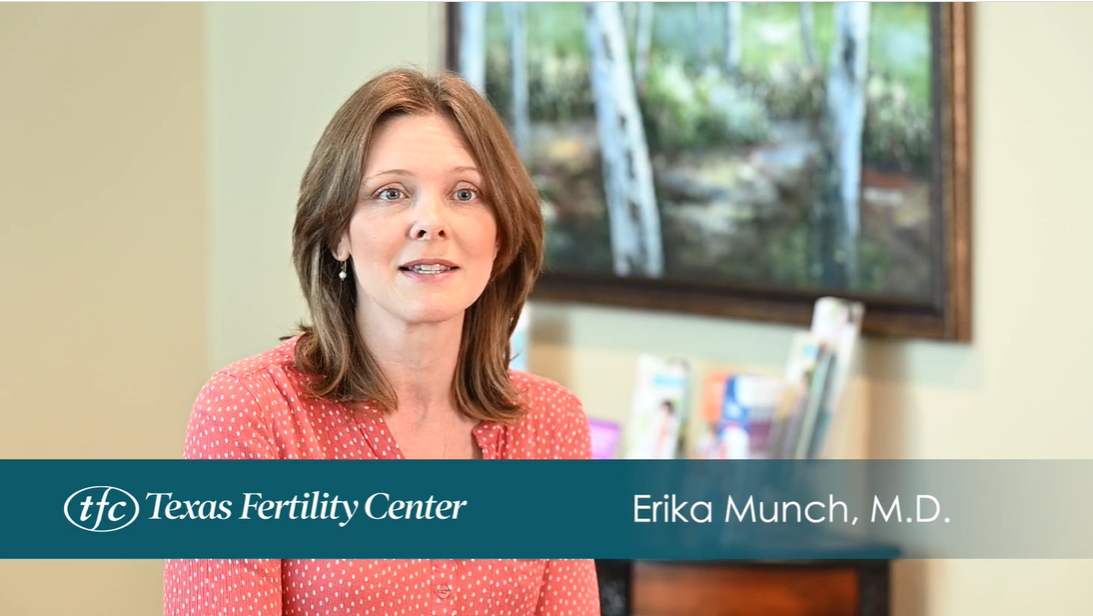
Discover why it’s important to select a board certified fertility specialist
Maybe you want to learn more about your baseline fertility, or perhaps you need help overcoming infertility. Either way, a fertility doctor can help you. However, you shouldn’t partner with just any physician. Instead, you should do a little research to find a board certified fertility specialist.
Our Austin fertility doctors are board certified reproductive endocrinologists. This means that, after completing their formal training, they have passed a comprehensive exam to prove they understand topics related not only to obstetrics and gynecology, but more importantly to infertility and recurrent pregnancy loss. Board certification means that your physician is up to date on all the latest diagnostic and treatment options available to patients who suffer from infertility. It also proves that the doctor understands ovulation induction, in vitro fertilization (IVF) and minimally invasive surgery. By working with a doctor who is board certified, you’ll receive the best care possible.
How do you know if your doctor is board certified?
Visit the Society for Reproductive Endocrinology and Infertility, go to the Directory and enter your doctor’s name.
What does a board certified fertility specialist need to do?
Receiving board certification as a fertility doctor isn’t easy. It’s a rigorous and comprehensive process that involves multiple steps following college graduation.
- Four years of medical school
- Completion of a four-year obstetrics and gynecology residency
- Completion of a three-year reproductive endocrinology and infertility fellowship
- At least two years of practice following fellowship before you are qualified to take board examinations
Finally, the physician must pass two written and two oral examinations. One set is in Obstetrics and Gynecology and the other set is in Reproductive Endocrinology and Infertility. After passing the examinations, the doctor becomes a board certified fertility specialist. Not all fertility doctors in practice meet this last requirement. In fact, it’s an elite group of physicians, and our Austin fertility doctors at Texas Fertility Center are in this group.
Our newest physician, Allison Petrini MD graduated with honors, and she’ll be eligible to take her last board examinations in 2023.
What are the reasons a doctor might not be board certified?
There are several reasons why a fertility specialist might not have board certification.
The physician recently completed their fellowship and still needs to complete the required two years of practice to be eligible to take their board examinations.
Some fertility specialists decide not to take the board exam, while others may not be able to pass it.
A doctor might not have completed or even started a fellowship. For example, by law, any OBGYN can call themselves a “fertility specialist.” This is because all OBGYNs receive six to eight weeks of training in infertility during residency. This may be sufficient to give them an introduction to basic infertility diagnosis and treatment. However, it does not provide them with any meaningful experience in IVF, reproductive surgery, or the diagnosis and treatment of complicated infertility cases.
Why is board certification important?
Now that you know more about board certification, you might be wondering why it’s important to choose a board certified fertility specialist. Below, you’ll find some of the benefits.
The Gold Standard. Getting through medical school and residency training is a real challenge. However, it’s also the minimum requirement for a physician to diagnose and treat patients with gynecologic disorders, including infertility. Achieving board certification as a fertility doctor shows that a physician has gone well beyond the minimum.
Board certified reproductive endocrinologists have devoted three additional years of their lives after residency training to become experts in fertility treatment. They have then passed the most rigorous of examinations showing that meet the highest standards in the field.
Better For Patients. Research has shown that board certification is linked to better patient outcomes and improved doctor/patient communication. This additional training helps improve patient care and promotes fertility success.
Staying Current. Since 1987, all board certified fertility doctors have been required to become recertified every year. In addition to completing additional annual training, they must also pass a written exam every six years. When you are seeing a board certified fertility specialist, you can be confident that your doctor is up to date on the latest developments in the field.
Make an appointment with one of our board certified fertility doctors
Want to experience the difference that board certification can make? Contact us to schedule an appointment with one of our Austin fertility doctors today.












